Alumni DelaCruz shapes style of teaching around experience
September 17, 2021
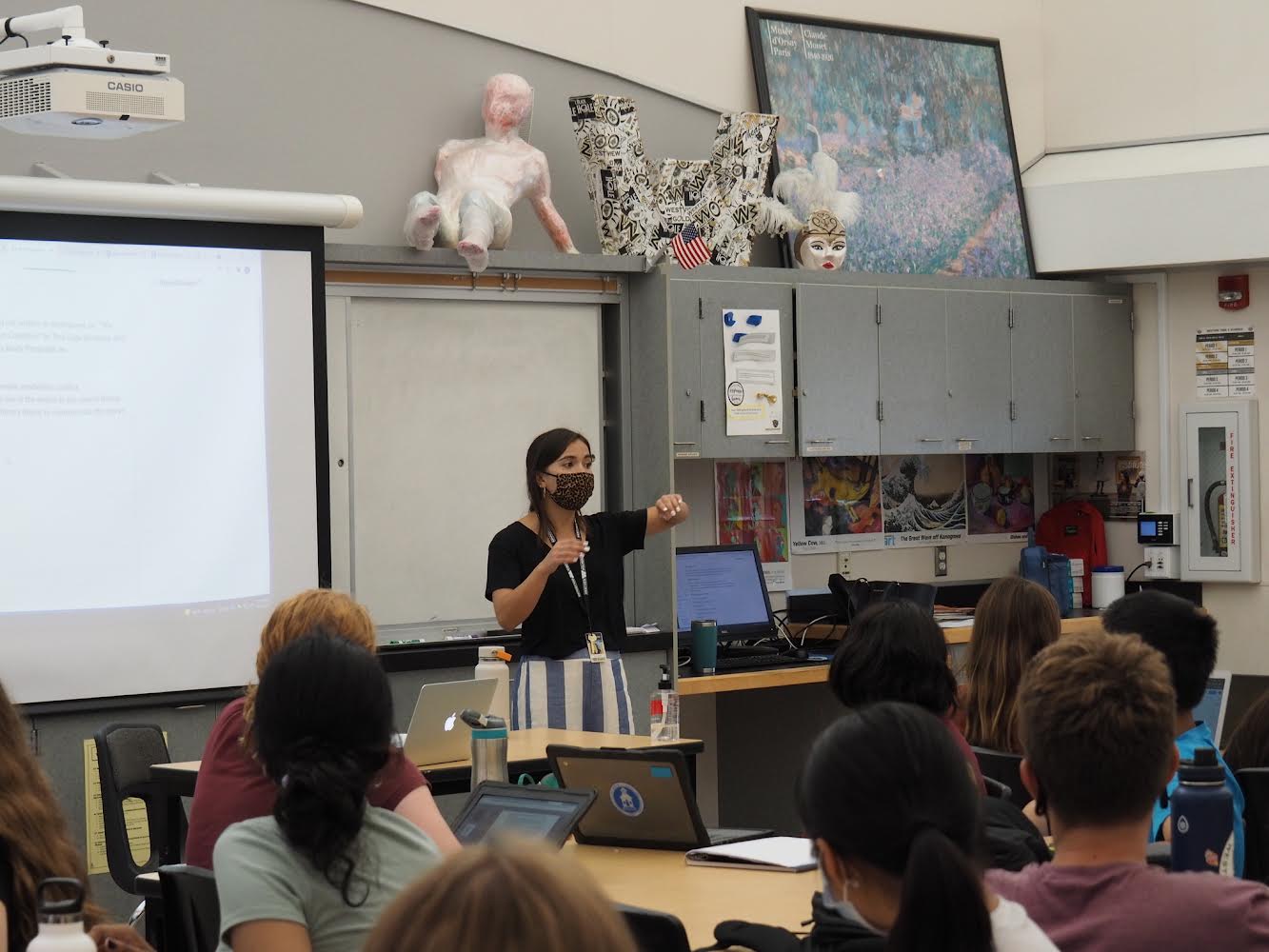
Seven years ago, this was just a dream. Seven years ago Melanie DelaCruz sat in Bob McHeffey’s classroom giving her passion speech about teaching in AP English Literature. Now, Ms. DelaCruz was waiting in P-107 for her own class of English students to arrive.
After teaching sixth grade in Oceanside last year, the thought of standing in front of a full classroom of high-schoolers felt incredibly daunting. She was nervous, but at the same time, said she felt an air of nostalgia.
Going into this job, DelaCruz knew what to expect because she had been a student on this campus seven years ago. She was even the editor-in-chief of The Nexus.
“It hasn’t been that long, so there’s still a sense of familiarity,” DelaCruz said. “It feels like I’m just adding to my story here. And rewriting a little bit. [Westview] is a really special place.”
As she lectures her Honors English 1-2 and English 3-4 classes, DelaCruz said she can’t help but recall her own experience as a student in Honors English.
“One of the ways I can often connect to my students is I literally have been in their chairs. For my Honors English ninth-graders, I took Honors English when I was here,” she said.
She still remembers the enthusiasm of her teacher Jeff Wenger during AP English Language.
“When Wenger reads the 300 words or less by Brady Dennis, the one with the toll booth bridge, when he reads that you can tell he has so much passion for the writing,” she said.
The same connections she bridged with her teachers as a student were what ultimately pushed her to pursue teaching at Westview.
“I felt really seen and understood in the classroom by my teachers [as a student],” she said.
Wenger understood her.
“She saw possibilities in her education,” Wenger said. “She saw them with The Nexus and embraced them to make a good newspaper. She saw the possibilities with writing essays and tried to be creative with them. One time, we were talking in APEL about some device like chiasmas in class, and BAM, the next on-demand she tries to put a bunch of that in there. That doesn’t really happen very often. People don’t typically do that that quickly. It showed me that she was here to embrace the opportunity to learn and to push herself.”
Since DelaCruz was able to have that experience, she said she wants to go full circle to help her students at Westview.
At the same time, DelaCruz said she recognizes the pressures that Westview students feel, as she too felt the pressures of the school’s competitive culture.
“There was definitely a stamina—you have a lot of work and there’s this culture of success, like if you’re not busy, you’re not doing enough,” she said.
That’s why DelaCruz makes it a priority to converse with her students.
“I talk to [my students] and I circulate often,” she said. “In my 10th-grade class, I had them all write me a letter of introduction and in my ninth-grade class they shared things on flashcards for me.” DelaCruz uses the cards to call on her students to participate in class.
DeleCruz also said that she gets to know her students through reading their essays.
“There is such a high capacity to get to know your students because they’re writing, and you can tell a lot about a person from their writing,” she said. “I want you to feel like you can take a risk in your analysis and not be shut down, but encouraged to think beyond what other people are thinking. That’s the beauty of English.”
DeleCruz said the English classes she took at Westview have contributed to the compassion she feels toward her current students.
“[Reading] is one of the few things where you can actually fully step into another person’s perspective,” Delacruz said. “You can step into a story because you’re choosing the pacing, casting the characters, and experiencing this story, so it can help people develop empathy.”
In her own experience, DelaCruz’s own English teachers at Westview challenged her.
“There’s a fine balance in supporting someone and pushing them when they need to be pushed,” she said. “That’s the thing I really felt like my teachers that Westview were good at. I felt like I was affirmed and I was doing something right, but I was challenged and I knew I could do better.”
While she challenges her students academically inside the classroom, she doesn’t limit her interaction with them to only academics. DelaCruz’s desire to understand her students’ mindsets stems from the strong relationships she forged with her teachers in high school.
“The teachers that I had strong relationships with were the teachers that I feel like understood me beyond just being a student, but as a human,” she said. “They knew who I was. They knew my identity, and I wasn’t just a person in a chair.”
DelaCruz first practiced her approach when she was getting her teacher credential as a student teacher at Hoover High School in San Diego.
“Hoover was a Title One school where 87% of the student body lived below the poverty line,” DelaCruz said. “But it was an incredible experience. [Teaching at Hoover] broadened my own perspective.”
The students at Hoover faced a lot of difficulties and hardships and DelaCruz had to adjust her teaching to fit the students’ circumstances.
“The students at that school were just dealing with so many issues that were beyond my scope of comprehension,” she said. “It was like a whole other side of having to understand how I can work with that student body and make sure they’re feeling seen, connected, and safe in the classroom.”
DelaCruz is creating the same supportive environment in her own classroom this year that she had in high school and at Hoover.
“It’s important to understand that students are human beings first and to just go about things with grace and understanding, and taking the time to get to know them,” she said.
She often circulates her classroom talking to her students.
Abby Siu (9), a student in DelaCruz’s class, attests to her student-focused teaching style.
DelaCruz works to make sure that each of her students have a chance to participate. “She calls on like a lot of people to answer the question, whereas if you’re like in high school, you don’t really get that as much, it’s more like one person answers the question or the teacher answers the question for you.”
“I am still learning,” DelaCruz said. “I’m really drawn to this notion of teaching that I’m continually becoming a teacher, I don’t even feel I’m a teacher yet. To me, it’s this ongoing process of learning, reflecting and growing.”


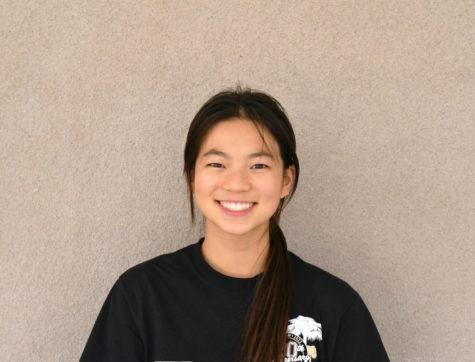
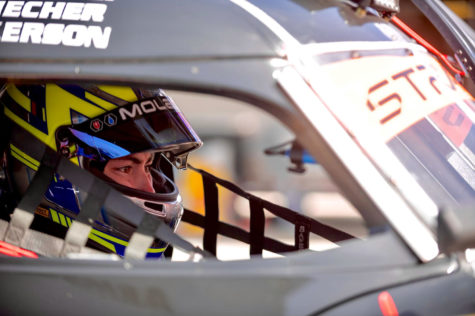
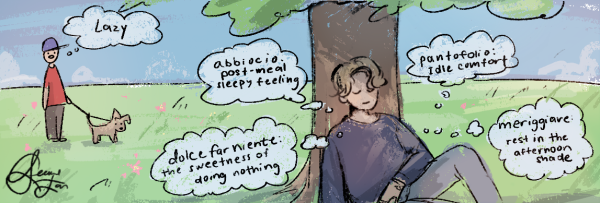

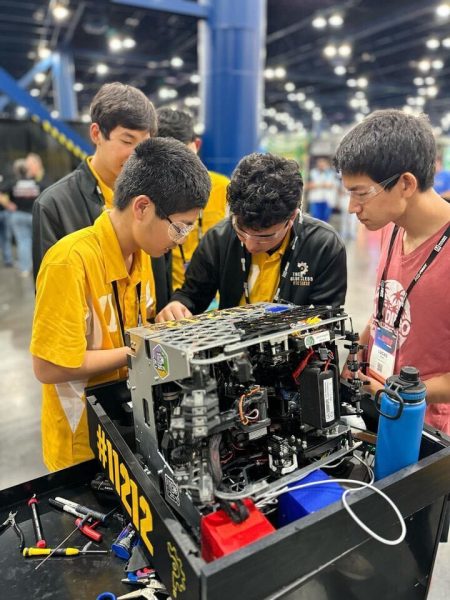
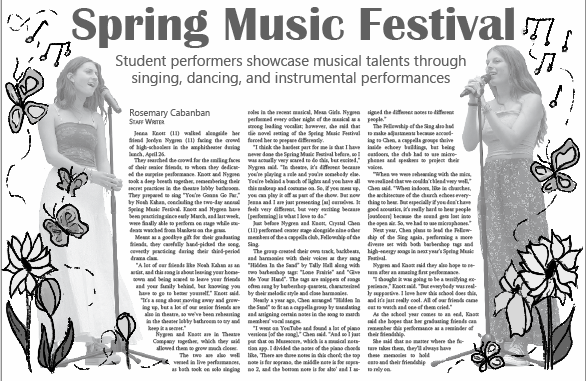

Martin • Mar 20, 2022 at 11:22 pm
That was my 6th grade English teacher in Oceanside